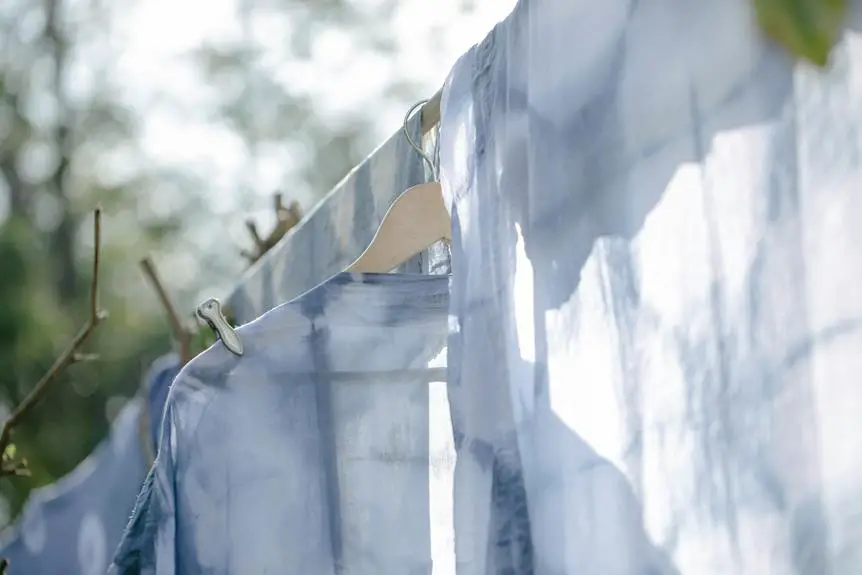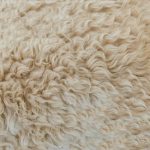As you prepare for your next outdoor adventure, you're likely wondering how your French terry gear will hold up in the face of extreme weather. Will it keep you cool and dry in the scorching heat, or warm and toasty in freezing temperatures? You're not alone in asking these questions. French terry's unique construction and moisture-wicking properties make it a top contender for outdoor enthusiasts, but how does it really perform when the weather gets rough? Let's take a closer look at what sets French terry apart and what you can expect from this versatile fabric.
Table of Contents
Performance in Scorching Heat
When you're wearing French terry in scorching heat, you'll likely notice it absorbs sweat quickly, but its ability to dry fast is what really sets it apart from other fabrics.
This is because French terry has a unique texture that allows for excellent airflow and moisture-wicking properties. As you move around, the fabric's loops help to lift sweat away from your skin, allowing it to evaporate rapidly.
You'll appreciate this feature on hot summer days when you're engaging in outdoor activities or simply running errands. French terry's quick-drying ability helps to keep you cool and comfortable, reducing the risk of overheating and discomfort.
Additionally, the fabric's breathability prevents the buildup of sweat and bacteria, making it ideal for active wear.
In scorching heat, French terry's performance is unparalleled. Its ability to absorb and evaporate sweat quickly makes it an excellent choice for clothing that needs to keep up with your active lifestyle.
Whether you're hiking, biking, or just lounging in the sun, French terry is a great option to keep you cool and comfortable.
Cold Weather Durability Test
As you swap out your summer wardrobe for warmer layers, you might wonder how French terry holds up in cold weather – can it provide the same level of comfort and performance in freezing temperatures as it does in scorching heat?
The answer is yes. French terry is made from a type of looped terry fabric that provides excellent insulation and warmth, even in cold weather. The looped structure traps warm air next to the skin, keeping you cozy and comfortable.
When tested in cold weather, French terry has shown impressive durability. It retains its shape and size even after repeated washing and drying, and the fabric doesn't become stiff or rough.
Additionally, French terry has a high resistance to pilling, which means it will maintain its texture and appearance even after repeated wear and tear.
In extreme cold weather, French terry may become slightly stiffer, but it still provides excellent warmth and comfort.
Overall, French terry is an excellent choice for cold weather clothing, and it can withstand the rigors of freezing temperatures with ease.
Its performance and durability make it a great option for winter wardrobe staples.
Moisture Wicking Capabilities
French terry's ability to wick moisture away from your skin is just as impressive as its insulation properties, making it an excellent choice for high-intensity activities in extreme weather.
When you're engaging in activities like hiking, skiing, or running in cold and wet conditions, you need a fabric that can keep you dry and comfortable. French terry's unique looped pile construction allows it to efficiently wick away moisture from your skin, preventing the buildup of sweat and reducing the risk of chilling.
As you exercise, French terry's moisture-wicking capabilities help to regulate your body temperature, keeping you warm in cold weather and cool in warm weather. This is especially important in extreme weather conditions, where hypothermia or heat exhaustion can be serious concerns.
Wind Resistance and Breathability
You'll appreciate the wind resistance and breathability of French terry when it's put to the test in harsh, gusty conditions, as it expertly blocks wind while allowing for airflow to prevent overheating.
This unique combination of properties makes French terry an excellent choice for outdoor enthusiasts who need protection from the elements without feeling suffocated.
When you're hiking, biking, or engaging in other high-intensity activities, you'll want a fabric that can keep up with your demands. French terry delivers, providing a comfortable and secure fit that won't restrict your movement.
- Reduced wind chill: French terry's dense weave blocks wind, reducing the chill factor and keeping you warmer in cold conditions.
- Prevents overheating: The fabric's breathability allows for airflow, preventing overheating and discomfort during intense activities.
- Enhanced moisture management: French terry's ability to wick moisture and dry quickly helps regulate your body temperature, keeping you cool and dry in extreme weather conditions.
Temperature Regulation Abilities
When you're pushing your limits in extreme weather, your clothing's ability to regulate temperature can be the difference between a great experience and a miserable one – that's where French terry's temperature regulation abilities come into play.
You'll be glad to know that French terry excels in this department. Its unique fabric construction allows for excellent moisture-wicking properties, drawing sweat away from your skin and evaporating it quickly. This helps to prevent overheating and discomfort, keeping you cool and dry even in sweltering conditions.
French terry's temperature regulation abilities aren't just limited to warm weather. Its thick, plush pile also provides excellent insulation, trapping warm air close to your skin and keeping you cozy in cold conditions.
This makes it an excellent choice for outdoor activities like hiking or skiing, where temperatures can fluctuate wildly. Whether you're climbing a mountain or running through the city, French terry's temperature regulation abilities will help you stay comfortable and focused.
Frequently Asked Questions
How Often Does French Terry Shrink After Multiple Washing?
You'll notice French Terry shrinks slightly after the first wash, but subsequent shrinkage is minimal. After multiple washes, you can expect around 2-3% shrinkage, depending on washing and drying methods you use regularly.
Will Fabric Protector Compromise the Quality of French Terry?
You're wondering if fabric protector will compromise French Terry's quality. Applying a fabric protector won't damage the fabric, but it may reduce the softness and breathability of the French Terry, affecting its overall comfort and performance.
What Ph Balance Will Break Down the Structure?
You're looking for the pH balance that'll break down French terry's structure. A pH level below 5.5 or above 8.5 can weaken the fabric's integrity, but it's the level below 4 or above 9 that'll cause significant damage.
Which Moth-Resistant Solution Protects Terry Materials Better?
You'll find that moth-resistant solutions like cedar oil and permethrin effectively protect terry materials. Permethrin, in particular, is a popular choice among outdoor enthusiasts, as it provides long-lasting protection against moths and other insects.
In Specific Aspects to Warmth Generation Is Jersey Useful Then Regular Fr's Options?
You'll find jersey's warmth generation useful in specific aspects, especially for athletic wear, as it traps warmth while allowing moisture-wicking properties, making it a better option than regular French Terry in certain performance-based applications.
- How Does Ring Spun Cotton Affect Garment Fit and Shape Retention? - August 13, 2024
- What Are the Challenges in Producing Ring Spun Cotton? - August 13, 2024
- Is Ring Spun Cotton Suitable for Plus-Size Clothing? - August 13, 2024







